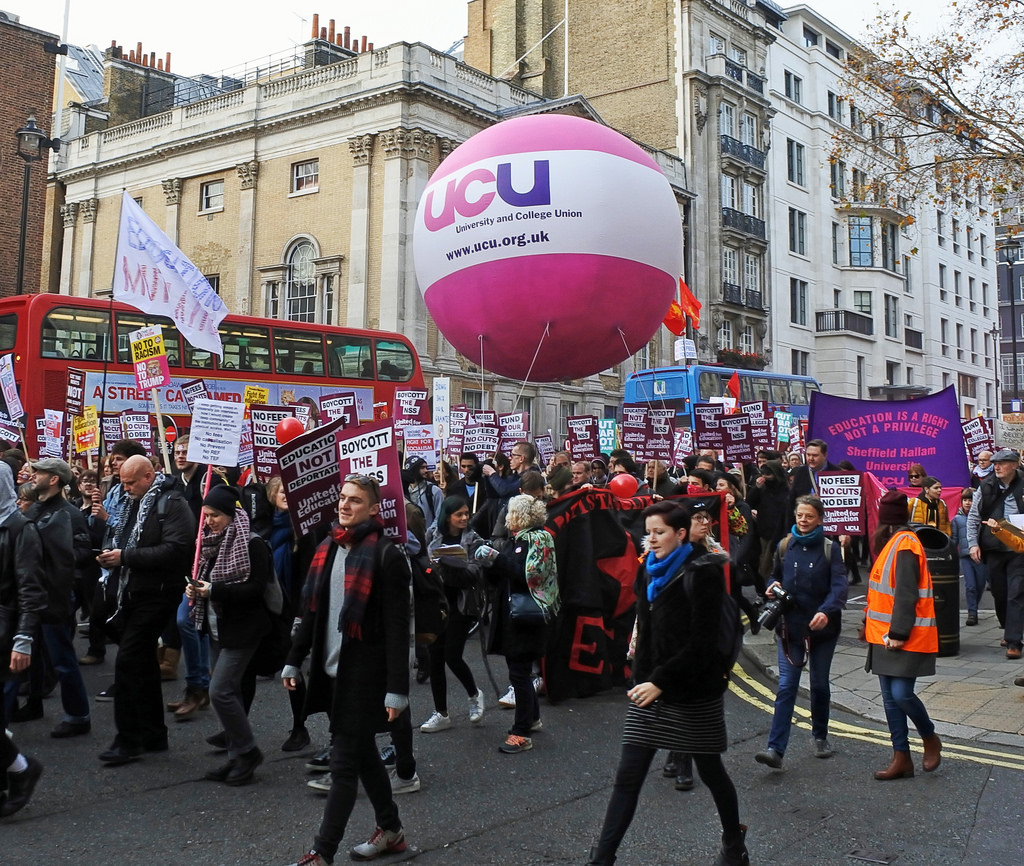Members of the UCU (University and College Union) have voted for industrial action in their dispute over potential changes to university pension schemes. 61 universities – including Sussex – will see an escalating wave of strikes over a four week period.
At Union Council on Monday evening, Sussex Students’ Union announced it would decide whether or not to back the UCU strike via an emergency Union Council meeting, which will be held at 6pm on Monday 19th February. This is contrary to a previous statement given to The Badger and that available on the Union’s website, which states that the Union will aim to get a mandate to support the strikes via a student referendum – a position which had been endorsed by Union Executive last Thursday. Frida Gustafsson, Union President, said this will give students the ‘opportunity to discuss at length’ the issues surrounding the strike, rather than a yes/no question.
In an email Monday morning from the Vice-Chancellor to all students, Adam Tickell said “The University recognises the rights of staff to take lawful industrial action and I personally respect the reasons why individuals may wish to strike. However, our priority must continue to be our students and ensuring that you receive the highest quality of education, with the minimal amount of disruption to your studies…I want to reassure you the University will remain open throughout this period and that we will be working hard to keep classes and activities running, as close to normal as possible.”
UCU members voted for industrial action, including strikes, on 19th January, with strikes set to begin on the 22nd and 23rd February. Talks between the UCU and Universities UK (UUK) – who represent the UK’s universities – took place in the wake of this vote, but broke down without an agreement. The UCU had said it was willing for talks with UUK to be extended if this meant the issue could be resolved without strike action.
The UCU is campaigning against proposed changes to the Universities Superannuation Scheme (USS), the current pension scheme for university employees. UUK want to move from the USS, which provides a guaranteed retirement income, to an alternative model where pension income is subject to changes in the stock market. The UCU claims that independent modelling shows the proposed changes mean a typical university lecturer would lose £200,000 in retirement income, if the changes were implemented.
At Sussex, 91.6% of votes supported taking strike action, whilst 95.2% of votes supported taking industrial action short of strike action. Turnout amongst Sussex UCU members was 61.7%, compared to a national turnout of 58%. Nationally 88% of UCU members voted to back strike action and 93% backed action short of a strike. Ballots require a 50% turnout for action to be taken.
The Badger estimates that a student with ten contact hours per week is paying £38 per session. Across the fourteen days of striking, this amounts to over £1000 in lost services.
The Students’ Union responded to the proposed strike action that ‘the University of Sussex Students’ Union Executive stands in support of our academic staff who have voted to take action to campaign for fair pensions.’
‘The proposed industrial action by UCU, a trade union for academics and other staff, has the potential to negatively impact current students. We in the Students’ Union Executive take this very seriously and are concerned about it.
‘However, we also recognise that the changes to employment conditions for staff proposed by UUK will have a long-lasting detrimental effect on current and future students. Students’ education relies on academic staff so their employment experience and conditions will impact students.
‘These changes particularly impact newer academics, which includes current Sussex postgraduate students, who already face uncertain careers with casual contracts and poor promotion prospects. We support our students in acting in solidarity with UCU at Sussex.
‘Strong student support could help pressure UUK to resolve matters via compromise with UCU before industrial action takes place. ‘
Samuel Solomon, Lecturer in Creative and Critical Writing in the School of English at Sussex, voted in favour of strike action by the UCU.
He commented that ‘management’s attack on academic pensions is actually a pay cut, and it is part of a broader government and management strategy to privatize universities. It is one more nail in the coffin for education as a social good.
Along with the rapid rise in fixed-term and casual work contracts (you know, your lecturer who was here for one term and then disappeared? they probably don’t have a job now), this is one piece in a larger process of rendering workers precarious and reducing our ability to focus on what students and staff alike are here for: education.
‘I don’t take striking lightly, and I don’t look forward to missing class sessions or to losing a significant chunk of my income. But we can’t just sit back and let the employers the take everything that staff and students have built together and then, piece by piece, sell it back to us.’
Sally Hunt, general secretary of the UCU, commented that ‘staff who have delivered the international excellence universities boast of are understandably angry at efforts to slash their pensions. They feel let down by vice-chancellors who seem to care more about defending their own pay and perks than the rights of their staff.’
‘Strike action on this scale has not been seen before on UK campuses, but universities need to know the full scale of the disruption they will be hit with if they refuse to sort this mess out.’
Image: Flickr: Dun.can





